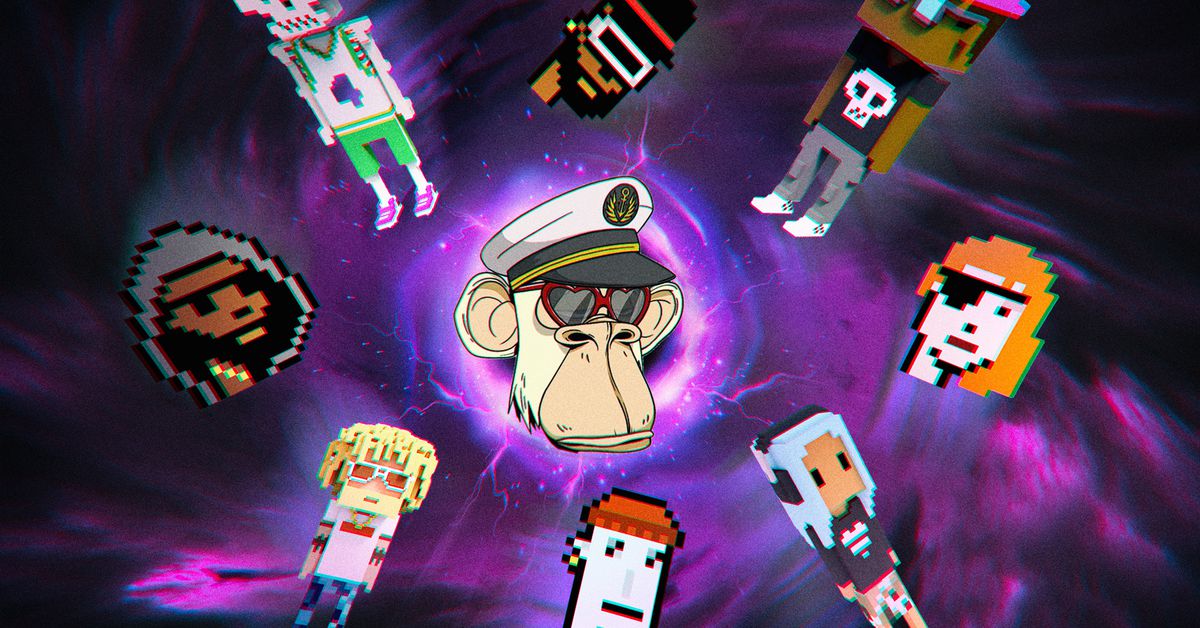Yuga Labs, the web3 company behind the Bored Ape Yacht Club, disrupted the entire Ethereum blockchain as a flood of users rushed to buy NFTs representing virtual plots of land in its upcoming metaverse project, Other side. A total of 55,000 Otherdeeds sold at a flat price of 305 ApeCoin, or approximately $5,800 at the time of purchase (via Corner Telegraph), raising approximately $320 million in what was considered the “largest NFT currency in history.”
Other deeds are minted in BAYC’s native ApeCoin, but still need ethereum for gas fees. A gas tax is the cost associated with a transaction on the Ethereum blockchain. Fees generally increase as the network becomes more congested, as it becomes more difficult to process a transaction.
Such a volume of transactions during the Otherdeed currency has caused gas fees to skyrocket. As noted Corner Telegraph, Reddit user u/johnfintech pointed out that some buyers are shelling out between 2.6 ETH ($6,500) and 5 ETH ($14,000) in gas fees alone — more than the cost of an NFT Otherdeed ( and in some cases more than double the cost). By the time the virtual title deeds sold out, buyers had paid a total of around $123 million just to execute their trades on the Ethereum blockchain (via Bloomberg).
Yuga Labs issued an apology on Twitter shortly after the end of the mint. “We are sorry to have turned off the Ethereum lights for a while,” said Yuga Labs. “It seems quite clear that ApeCoin will need to migrate to its own chain to scale properly. We would like to encourage the DAO [decentralized autonomous organization] to start thinking in this direction. The ApeCoin DAO, the entity responsible for making decisions within the ApeCoin community, exists separately from Yuga Labs. Decisions of the DAO are carried out by the Ape Foundation Board of Directors, made up of Reddit co-founder Alexis Ohanian, Animoca co-founder Yat Siu and others.
We are sorry to have turned off the Ethereum lights for a while. It seems quite clear that ApeCoin will need to migrate to its own chain to scale properly. We would like to encourage the DAO to start thinking in this direction.
— Yuga Laboratories (@yugalabs) May 1, 2022
The disruption slowed transactions on Ethereum-related services, like Uniswap, and caused Ethereum transaction tracker Etherscan to crash. A number of users also said he lost thousands of dollars in gas costs in failed trades. Yuga Laboratories promised to reimburse users for gas fees associated with failed transactions, but it’s unclear what the reimbursement process will look like. The edge contacted Yuga Labs with a request for comment, but did not immediately respond.
As noted in a post a few days before the mint, Yuga Lab’s initial goal was to avoid a “doomsday” gas war, or a sudden spike in gas costs due to high demand. He said he would abandon the popular Dutch style of auction minting, in which an NFT is offered for sale at a certain ceiling price and then gradually lowered over time. Instead, he used an alternative method, selling NFTs at a fixed price and choosing to gradually allow more mints to occur over time:
Rather than resorting to a fake Dutch auction, the Otherdeed Mint will use the following mechanism: the sale price will remain stable for the duration, and at the start of the sale there will be an intentionally low limit per wallet on the number of NFTs that can be hit (note that these are not ‘one hits’, but ‘total hits’). Once the initial wave of relatively low gas consumption transactions have been submitted and the network begins to calm down, the wallet-level strike limit will be increased to allow for a second wave of strikes – those who are sated will pass this wave, while those with more ApeCoin to spend, will monetize.
The mint hotel mess has prompted some users to suggest ways to improve the process in the future. Will Papper, the co-founder of Syndicate DAO, a platform that allows users to create web3 investment clubs, suggested that Yuga Labs optimizes its contracts to reduce gas fees and adjusts its mint mechanism.
Of course, gas optimizations are only part of the equation.
You need better mint mechanism design (allowed listing, dutch auction) + gas optimizations.
Money spent on gasoline is money that could go to builders. This is done through both currency design + smart contract.
— WillPapper ✺ (@WillPapper) May 1, 2022
In March, Yuga Labs raised $450 million in funding to build the Other side, a decentralized metaverse with gamification elements. While it’s supposed to encompass Yuga Lab’s NFT brands, such as the newly acquired CryptoPunks and Meebits, the company aims to expand support for NFTs from other entities. There are still many unknowns about the prospective Other sidebut that clearly hasn’t stopped its enthusiastic community from investing in the project.

